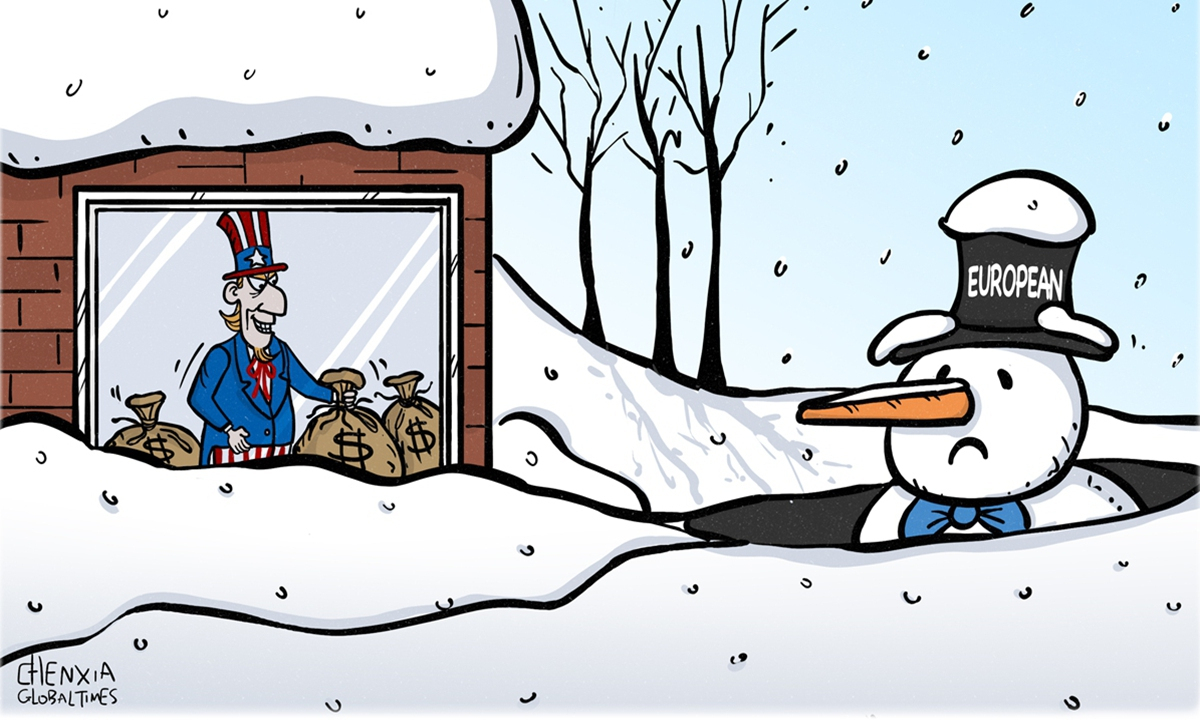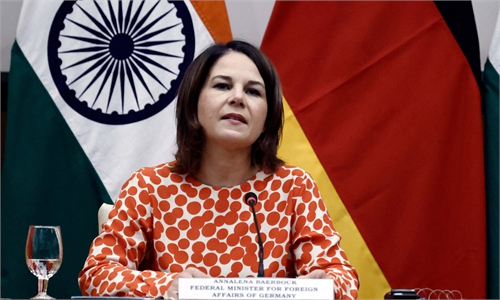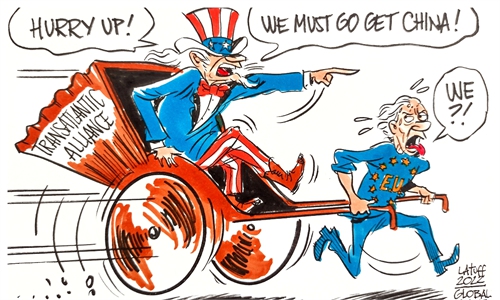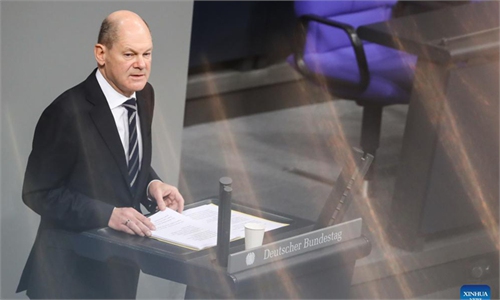
Illustration: Chen Xia/GT
While the crisis in Ukraine has been going on for nearly 10 months, the European countries have been trapped in a serious energy crisis as winter approaches. Since the outbreak of the conflict, the United States has joined forces with its allies to launch a full range of sanctions against Russia, not hesitating to cut off gas and oil supplies to Europe, which together with high inflation have raised Europe's energy costs this winter 10times higher, resulting in one of the most serious energy crises in generations.
According to national statistics, as of mid-September, 45percentof the British public are finding it difficult to afford their energy bills. German companies, particularly chemical and automotive ones, have been forced to cut back on production due to high energy costs. The energy crisis has also led to rising agricultural costs. As of August this year, the average cost of agriculture in France has increased by 28.7percent, which hit hard many local vegetable farmers.
The EU has been rapidly losing its economic dominance as its global GDP share has dropped from about31percentin 1980 to 17.8percent in 2021. The energy crisis has hit Europe's manufacturing competitiveness and raised the concern of "de-industrialization". Burdened with overwhelming fiscal and employment pressures, Europe is facing unprecedented inflation and economic recession. In August, the exchange rate of euro against US dollar even fell below parity (1 euro equals 1 dollar), the lowest in nearly 20 years.
These economic woes have led to social outcry and protests across the continent. In Romania, people blew horns and pulled up banners to express their frustration over soaring prices. Across France, more than 100,000 people took to the streets in solidarity with the struggling oil refinery workers. Czech demonstrators criticized the government's incompetence in handing the energy crisis. Britain has also witnessed growing industrial unrest in the form of strikes, demanding the government to resolve pay disputes.
In face of energy shortages and downward pressure on the economy, many European countries have entered a period of political fragmentation, polarization and instability. The UK had three prime ministers in seven weeks. Italy became the first major European country that witnessed the far-right taking power since World War II, while far-right populist forces are also gaining influence in countries such as Sweden and France.
The current "pro-Ukraine, anti-Russia" mood seems to prevail over everything. Europe cannot jump out of the trap of "political correctness". But with sanctions against Russia backfiring on itself, "Ukraine fatigue" is sweeping across the EU, where anti-war sentiment is pervasive, and people are more concerned about their own living. If some politicians are bent on going their way, people may eventually choose to "vote with their feet".
Under the crisis, the desire of European countries to "stay together to keep warm" has risen. The first summit of the European Political Community finally took place after being long overdue, and the EU autumn summit reached a political consensus on the "energy road map." On the other hand, there are cracks in the "Franco-German axis", meanwhile the tug-of-war between "decoupling" and "anti-decoupling" in both political and business circles has become increasingly prominent.
Europe has now fallen from being a post-war example of prosperity, stability and integration to the front line of geopolitical conflicts, where the "wounds" of the Ukraine crisis continue to bleed, and the "peace dividend" is fast depleting.
With their national interests repeatedly being ripped apart by the US, French President Emmanuel Macron declared that "France is not a vassal state," while German Vice Chancellor Robert Habeck complained about the "sky-high" gas bill proposed by the US.The transatlantic "friendship in need"is witnessing subtle changes.
Facing tensions in the Russia-Ukraine conflict, if Europe still wants to defend its interests in geopolitical games, its own strategic autonomy will be a vital bargaining chip, of which independence from the US is of paramount importance. Otherwise,it will only throw its future to the mercy of others.
The author is a commentator on international affairs, writing regularly for Global Times, China Daily etc. He can be reached at xinping604@gmail.com



